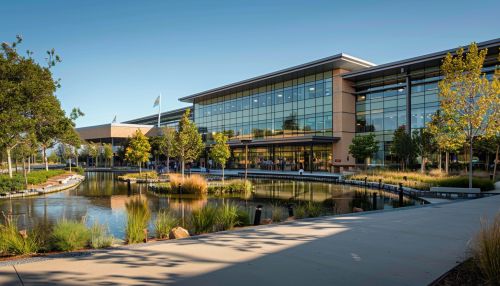Pixar
History
Pixar Animation Studios, commonly known as Pixar, is an American computer animation studio known for its critically and commercially successful feature films. It is based in Emeryville, California, and is a subsidiary of Walt Disney Studios, which is owned by The Walt Disney Company.
Pixar began in 1979 as part of the Lucasfilm computer division, known as the Graphics Group, before its spin-off as a corporation in 1986 with funding from Apple co-founder Steve Jobs, who became its majority shareholder. The studio has produced 24 feature films, beginning with Toy Story (1995), which was the first ever computer-animated feature film, and its most recent offering, Soul (2020). Pixar's films have won numerous awards, including 21 Academy Awards, 9 Golden Globe Awards, and 11 Grammy Awards.


Technology
Pixar's production software, known as RenderMan, is a suite of tools that allows artists to generate high-quality, photorealistic images. RenderMan was first used in 1982 to render images for the film Tron. Since then, it has been used in nearly every Pixar film and in many other studios' films. RenderMan is also used in the visual effects industry, where it has won several awards for technical achievement.
Pixar also developed a number of other technologies. In 1995, it developed the Marionette 3D modeling system, which was used to create characters and sets for its films. In 2002, it developed the Presto Animation System, which is used to animate characters and objects in its films.
Films
Pixar's films are characterized by their high quality of animation, innovative storytelling, and attention to detail. They often contain a mix of humor, drama, and adventure, and are known for their emotional depth and thematic richness.
Pixar's first feature film, Toy Story, was released in 1995. It was the first feature-length film to be entirely computer-animated, and it was a critical and commercial success. It was followed by a series of successful films, including A Bug's Life (1998), Toy Story 2 (1999), Monsters, Inc. (2001), and Finding Nemo (2003).
In 2004, Pixar released The Incredibles, which was a departure from its previous films in that it was targeted more towards adults than children. Despite this, it was a critical and commercial success, and it won the Academy Award for Best Animated Feature.
Pixar's subsequent films have continued to be successful, both critically and commercially. These include Cars (2006), Ratatouille (2007), WALL-E (2008), Up (2009), Toy Story 3 (2010), Cars 2 (2011), Brave (2012), Monsters University (2013), Inside Out (2015), The Good Dinosaur (2015), Finding Dory (2016), Cars 3 (2017), Coco (2017), Incredibles 2 (2018), Toy Story 4 (2019), and Soul (2020).
Impact and Influence
Pixar's films have had a significant impact on the film industry. They have popularized computer animation as a medium for feature-length films, and they have set a high standard for the quality of animation and storytelling in animated films.
Pixar's influence can be seen in the work of other animation studios, which have adopted similar techniques and storytelling approaches. Pixar's films have also influenced the development of animation technology, with many of its innovations being adopted by other studios and software developers.
In addition to its influence on the film industry, Pixar's films have also had a cultural impact. They have been praised for their positive portrayals of diversity and for their exploration of complex themes and emotions. They have also been influential in the field of music, with many of their soundtracks being critically acclaimed and commercially successful.
